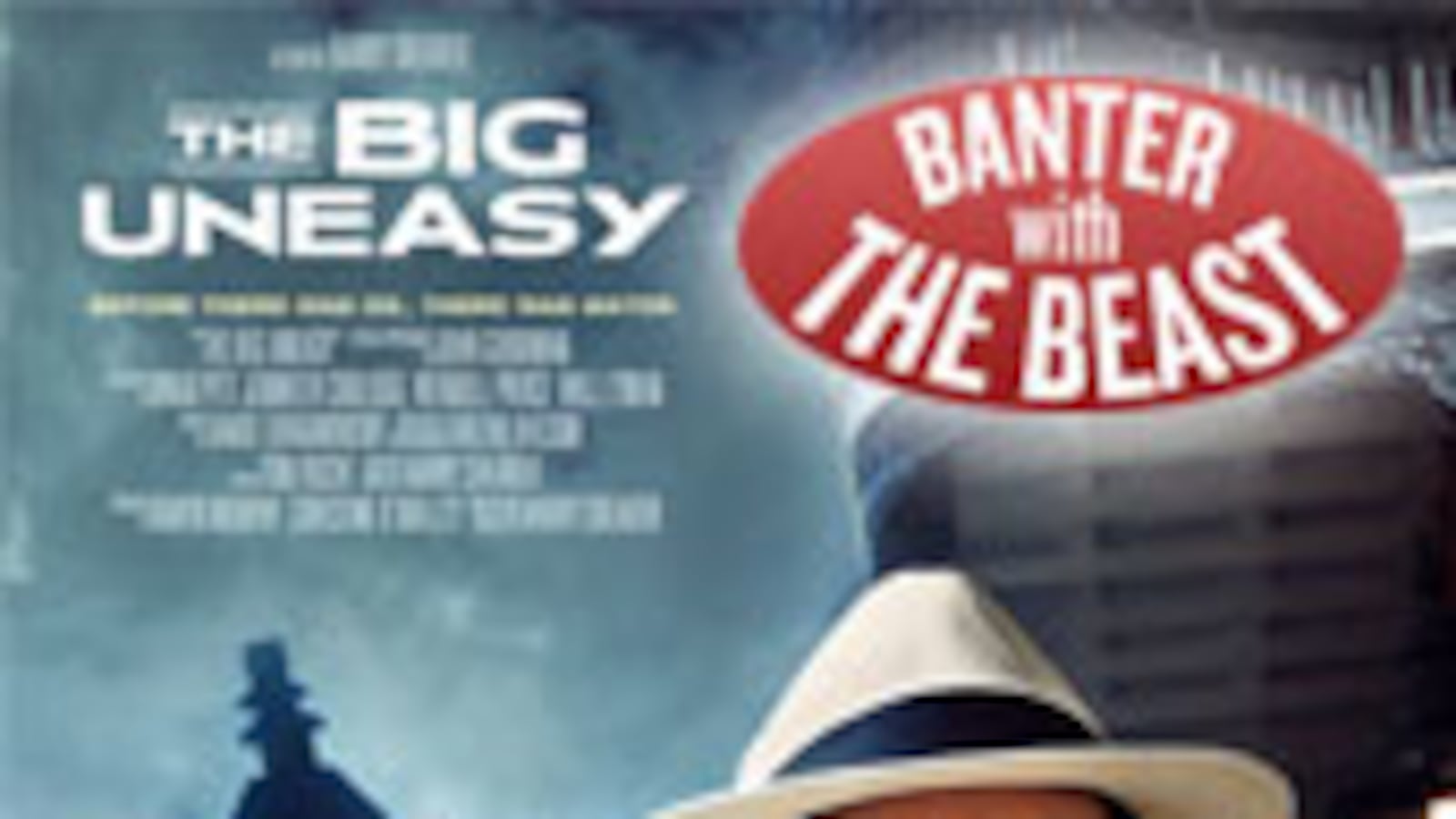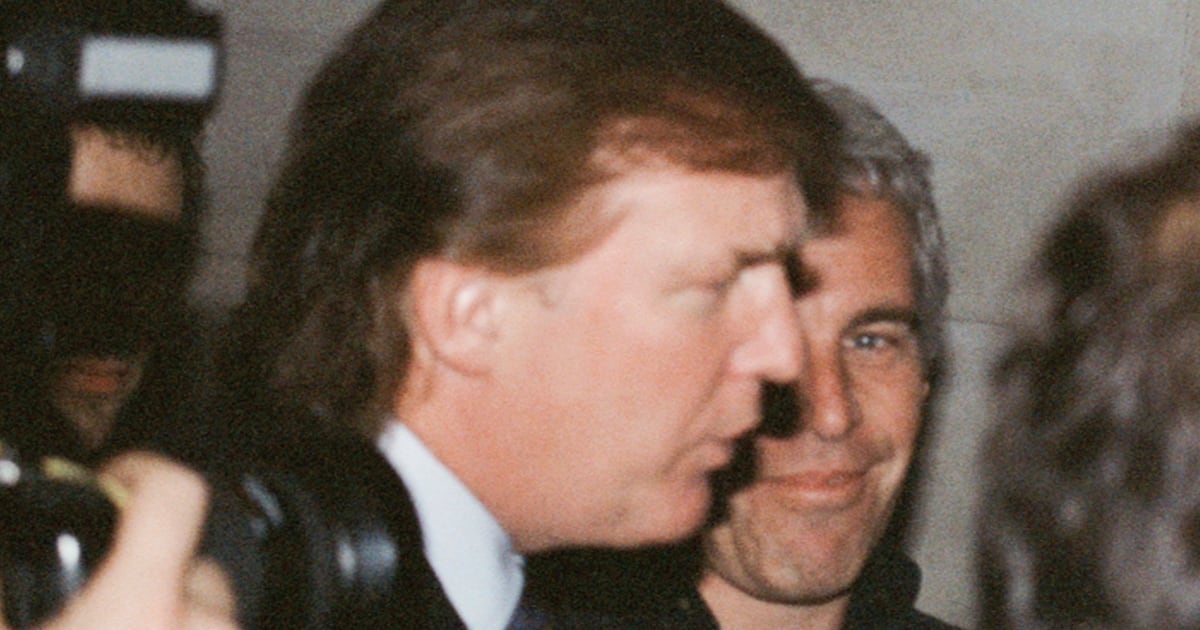
Don’t call what happened to New Orleans during Hurricane Katrina “a natural disaster”—not around Harry Shearer, anyway.
“I was in London last fall when President Obama was paying his three-hour and 45-minute visit to New Orleans—slightly less time than it took to play the Super Bowl game,” Shearer tells me. “He referred to the flooding—in passing—as ‘a natural disaster.’ I just hit the roof. I went, ‘OK, blogs and radio and all the other things I’ve been doing clearly aren’t enough. I know what the next step is.’ And it was this.”
“This system was not only crappy; after four and a half decades, it wasn’t even done!” Shearer said.
“This” is The Big Uneasy, Shearer’s powerful documentary about the real culprit in the disaster that befell New Orleans five years ago—the Army Corps of Engineers. As Shearer abundantly demonstrates in his movie—which premieres August 30 in a one-night-only showing at 160-odd theaters nationwide—it was the Corps’ vast carelessness that caused the city’s levees to rupture amid the storm, sending the swelling waters of the Mississippi and Lake Pontchartrain rushing into residential neighborhoods, destroying thousands of houses and killing hundreds of people. And it would have been preventable, Shearer says, if the Corps had done its job.
“But we don’t just leave it at the doorstep of the Corps of Engineers,” says Shearer, whose film chronicles the federal agency’s woebegone history of building a badly designed, shoddily constructed—yet hugely expensive—system of levees and canals that didn’t come close to protecting the below-sea-level port city from catastrophic flooding. “We go a little further and ask, Why is this agency like this? It wasn’t born under a cursed astrological sign, was it? And it goes back to the doorstep of Congress, which likes this agency to operate in this highly bureaucratic and highly pork-barreled manner.”
The trailer for Harry Shearer’s new documentary The Big Uneasy
Shearer goes on: “You could envision a Corps of Engineers that was following a national policy of how to deal with water problems, dealt with them on a smart basis, budgeted in advance, and didn’t take four and a half decades to not even complete a system designed to protect a city like New Orleans. I’m not sure we stressed that enough: This system was not only crappy; after four and a half decades, it wasn’t even done!”
• Lloyd Grove: New Orleans' Miracle MayorThe 66-year-old Shearer—who, with his wife, singer-songwriter Judith Owen, has been a part-time resident of New Orleans’ French Quarter for the past 15 years—is best known as a funnyman. He’s the voice of Mr. Burns, Ned Flanders, and dozens of other characters on The Simpsons; the host of the satirical public-radio program Le Show; a member of Christopher Guest’s cinematic stock company (featured in such comedies as A Mighty Wind and For Your Consideration); and, most memorably, he was bass guitarist Derek Smalls in the classic 1984 mockumentary This Is Spinal Tap. A talented musician, Shearer tours periodically, impersonating an over-the-top heavy-metal rocker in the Spinal Tap band.
But this time he’s dead earnest.
When Katrina made landfall on the morning of Monday, August 29, 2005, he was in Los Angeles—where he and Owen have a home in Santa Monica—ensconced in pre-production on For Your Consideration.
“The minute I could get back from makeup consultations and wardrobe consultations and stuff like that,” Shearer recalls, “I'd come back home, get on the Internet, crank up the other facilities I have”—which include a couple of rooftop satellite dishes—“be glued to the feeds from New Orleans, looking at Google Earth trying to see my residence, calling friends to see how they were, and asking the question that replaced ‘Who dat?’ as the ritual greeting in New Orleans—which was, ‘How’d you make out?’”
Shearer was grief-stricken.
“I did a radio show that Sunday, and I thought, as I was putting the show together, that this might well be a farewell broadcast for the New Orleans I had known,” he says. “Nobody knew how long the city would remain under water or what would be there when the water left. You do the thing you do whenever you lose a friend or a loved one. You think: ‘Oh shoot, I should have spent more time there.’”
I ask Shearer why he loves New Orleans, a city that charmed him instantly on his first visit to JazzFest in 1988.
“Because it’s not trying to be a reproduction of European culture or anyplace else,” he explains. “It’s a mixture of European, African, and Caribbean roots, but it’s truly indigenous and one of a kind. And it’s not capital-C Culture, it’s small-c culture. It’s not something you go to see in a building with columns. It’s a thing that defines how every part of life is experienced and lived. It tells you what the days of the week at a particular time of year mean. It tells you why certain foods are eaten and when. It defines where music comes from—and in the case of New Orleans, it comes very much from the street. It defines the way people act toward each other and the way people regard life and death. It’s an all-enveloping culture, in really an anthropological sense of the word—and it’s incredibly seductive.”
So seductive, apparently, that he barely flinched before forking over nearly $500,000 of his own money to finance The Big Uneasy.
“I would like to think that Rupert Murdoch financed it, he just doesn’t know it,” jokes Shearer, who has had the amazing good luck of starring on Fox’s No. 1 hit television show for the past 22 years. He hopes to make the money back in box office, broadcast, cable, and DVD sales.
Shearer says that beyond Obama’s provoking aside about natural disasters, he made the film “because the story hadn’t been told nationally in great detail or with the necessary potency. I think the reason for that is suggested by a quote I got from a respected news anchor. When I asked why viewers of that broadcast were, some months along, still ignorant of the reason why the city flooded, the reply was, ‘We just think the emotional stories are more compelling for our audience.’”
I point out to Shearer—who is usually not so tactful when it comes to foolishness in the media—that he seems to be protecting the errant newscaster by not supplying his or her name.
“I am indeed,” he agrees. “I may need to be on that broadcast to promote the movie.”
The documentary—which features voice-over work by Shearer’s fellow New Orleanean, Brad Pitt, as well as an appearance by resident John Goodman—is a meticulous study of what went wrong, and why, guided by a team of independent scientists and engineers who investigated the levee failures in the immediate aftermath of the storm. Notwithstanding the kneejerk response of a "respected news anchor," there actually are some very compelling “emotional stories” in this saga of bad engineering. Notably, Louisiana State University hurricane expert Ivor van Heerden, who led a state-authorized team of investigators in an assessment of the levee system, was fired by the LSU chancellor for speaking publicly about the Corps’ malfeasance. And Army Corps of Engineers employee Maria Garzino was punished by her superiors (even as the federal Office of Special Counsel named her Public Servant of the Year) for refusing to give her seal of approval to a faulty pumping system being built by a Corps contractor.
“I couldn’t help thinking in the last week, as certain parts of the media were elevating a JetBlue flight attendant to hero status,” Shearer says, “there were people in this film who were far more deserving of that title than that guy.”
Is Shearer hopeful that the federal bureaucracy, and the Corps, will ultimately be reformed through outside efforts to keep them honest?
“I don’t think keeping them honest works,” Shearer says, noting that Obama has scheduled another visit to New Orleans on Katrina’s fifth anniversary. “If I ruled the world, I’d say that President Obama shouldn’t come to New Orleans next Sunday to deliver one of those speeches that we’ve become achingly familiar with by now—‘Oh, we’ll be better than before.’ We heard that from Bush after Katrina, we heard it from Obama after BP, and there’s a familiar hollowness to those words by now. If I were he, I would ask somebody to whip me up a speech about how we have to change our whole way of dealing with water issues in this country and get it off the pork barrel express into a saner, more policy-driven mode, more cognizant of the new realities of the 21st century in terms of climate change and rising sea level. And not deal with it the same way again, because that may lead to the same problems—or worse.”
Lloyd Grove is editor at large for The Daily Beast. He is also a frequent contributor to New York magazine and was a contributing editor for Condé Nast Portfolio. He wrote a gossip column for the New York Daily News from 2003 to 2006. Prior to that, he wrote the Reliable Source column for the Washington Post, where he spent 23 years covering politics, the media, and other subjects.






